Desire for nature
Students analyse Wuppertal's biodiversity
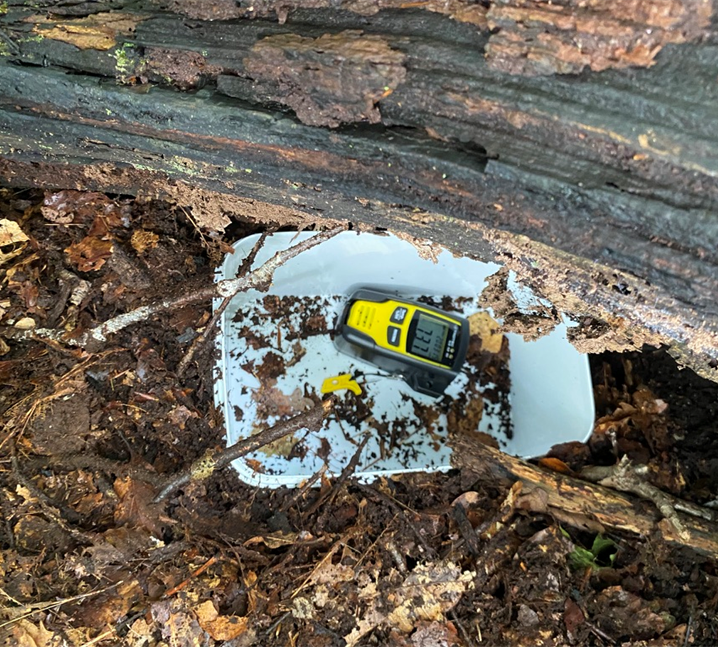
The students have fitted a trap with a hygrometer. // Photos Anja Hortig and Anna Lena Konradt.
Two of them are Anja Hortig and Anna Lena Konradt. As part of their project, the two biology students are investigating how biodiversity is influenced by different microhabitats. Their study area: Friedrichsberg in Elberfeld and the area around Zeppelinallee. Equipped with magnifying glasses, butterfly nets and identification apps, Anja and Anna Lena are investigating the local plant and animal diversity at forest edges, clearings and in deadwood areas. The aim: to gain a better understanding of nature and derive insights for its protection. They told us in an interview how they like the seminar and what makes it so special.
What exactly does a project day in nature look like? What exactly do you do on site?
The project day starts with us deciding which area we want to research. We do this depending on the weather and our previous level of research, among other things. Once on site, we then get an overall picture. We determine the weather conditions with the help of a device, the hygrometer, but our own sensitivity and observations also play a major role. Then it's time for active research. For us, the focus is on plants, insects and the like. To observe them, you have to search and have a lot of patience. We then spend several hours doing this. Of course, every day is slightly different, but the general programme is similar.
How do you like the course compared to more theoretical seminars? What do you take away from it?
You can't really compare this course with other seminars. Above all, the self-determination and the high practical component are not found in any other course - at least not in the courses we have attended so far. We are definitely taking a lot of positive things away with us. It's fun to plan and carry out your very own research project, with all the trimmings. However, we mustn't forget that there is still a theoretical part. We had to use specialised literature to develop a foundation on which to base our research. However, this course allows us to "think one step further" and put what we have read and learnt into practice. We see this as a great advantage compared to purely theoretical seminars. At the same time, it is also a motivational boost for our own work.
Was there anything that surprised you during your research?
We learnt how much patience you have to have and where our personal limits lie! We also had to overcome ourselves on several occasions. A big issue was our fear or disgust of spiders. And we were very surprised at how many of them were running around in the forest. One positive thing that struck us was how quickly the procedures became second nature to us. The first day was still very exciting, but from day two to three it was much more relaxed.
What insights have you gained from your research?
For us personally, we came to the realisation that practice makes perfect and organisation is everything. Organising research is time-consuming, it takes a lot of work in the background and also a lot of discipline. Our research results brought us the realisation that deadwood in particular provides a habitat for many species. We also came to the conclusion that a diverse structure of deadwood - different plants, structurally rich soil and more - also offers a higher diversity of species.
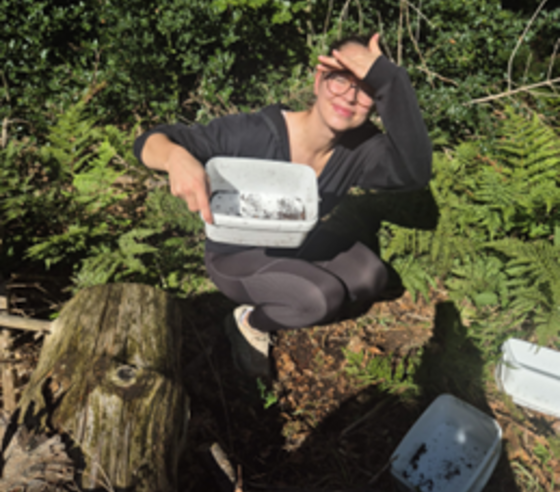
Anja Hortig shows one of the traps that the students have set up on site.
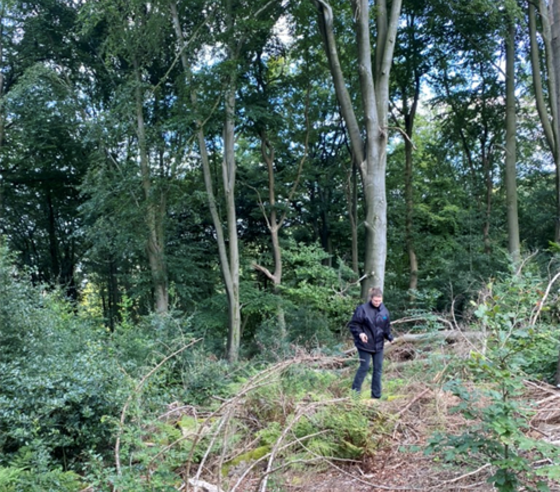
Student Anna Lena explores the habitat in a clearing.
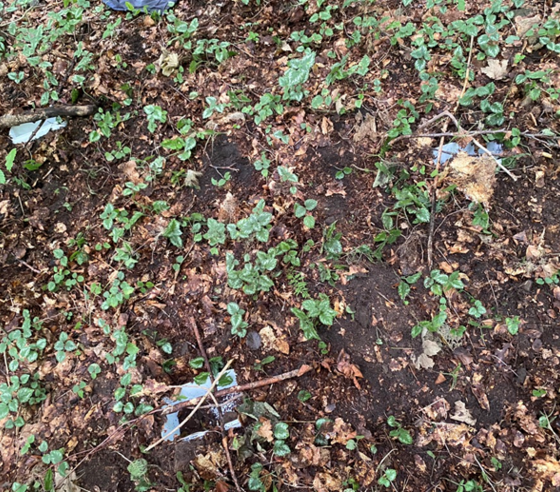
Ground traps are well camouflaged in the forest.
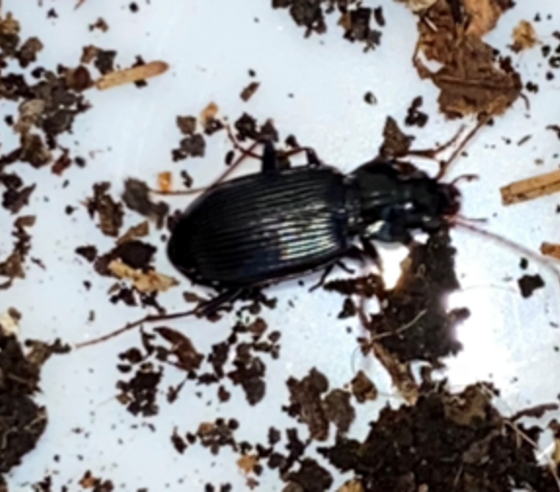
A discovery from the family of ground beetles: the so-called dam runner.
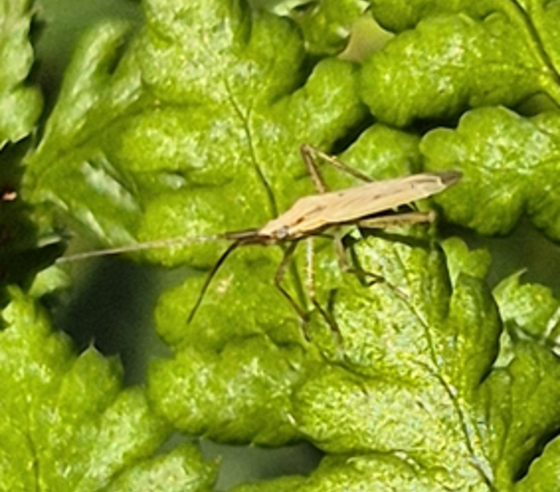
About the "Collaborative Biodiversity Experience" (KollaBio) project
The aim of the project is to counteract dwindling scientific knowledge and declining interest in nature. An innovative, open course and room concept is intended to promote knowledge of species, self-learning skills and positive self-concepts among biology students. Those responsible for and involved in the project, Prof Dr Angelika Preisfeld, Dr Nadine Domröse and Laura Heimlich from the Wuppertal Chair of Biology and its Didactics / Zoology, are focusing in particular on promoting self-directed learning.
This is realised in the KollaBio project through digitally-supported learning in the form of free research in the community. In concrete terms, this means that students are provided with an innovatively equipped co-working learning space, the so-called CoBioHub, in which they can work on their research projects
The aim
In future, the findings from the individual projects will be recorded on an interactive web-based map. The aim is to emphasise the relevance of organisms for nature and promote empathy among students. The concept will be evaluated and subsequently implemented in other courses.
